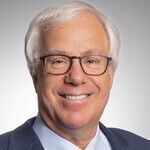The shower is where America does it — in private, with no one judging, just because it feels good.
I'm talking about singing, of course, that once-universal pastime that uplifts the soul, reboots the body and doesn't demand a monthly fee. So why aren't we singing all the time?
Singing is so basic to human happiness that some scientists say it may have evolved even before language. It was the way stories were passed down before writing, because it's a lot easier to remember a song than a paragraph. And that's why kids still sing their ABCs; our brains are built to embed music.
What's more, when actual language eludes us — for instance, after a stroke — sometimes music doesn't, because it is processed in another area of the brain. After my mom had lost almost all her memory, I could sing a few songs from her childhood and she could, out of the fog, join in.
The power of music is mysterious. One study of cancer patients found that an hour of singing boosted their immune proteins. It also lowers blood pressure. Even people with lung disease feel better when singing.
And of course, it's bonding. Sing with a group and you are one — a fact understood by anyone who has ever been in a choir or the military or a bus to summer camp.
But Americans (heck, humans) have been singing less and less ever since technology started to do it for us.
In the pre-Edison era, most middle-class families had a piano around which to sing, but then the record player and radio made it easy to hear music anytime. The smartphone made it even easier. And because the people singing on tape, TV and iTunes (though not necessarily YouTube) sing better than the rest of us, we started to believe that this is a task, like neurosurgery, best left to the professionals. So barring the occasional "Jingle Bells" or "Happy Birthday," most of us sing only to ourselves, if we sing at all. This is a loss of such gargantuan proportions that it's as if we stopped walking. Even clergy members report that their congregants are singing less.
What would it take for us to bring singing back into our everyday lives?
1) Make singing a regular part of school, and agree on a common repertoire. Even though my kids went to public school, K-12, they don't know "My Country, 'Tis of Thee" or even "I've Been Working on the Railroad." You can argue that we have a wider world now, but sharing at least a few songs is an easy way for people to connect.
2) Stop trying to sing like Mariah Carey. Nowadays when we sing, we think we have to sound like the professionals. (See: karaoke.) But that's like saying that anyone who wants to play basketball shouldn't bother unless he's got the word "Jordan" in his name. Singing is actually a skill that nearly all people get better at the more they do it. (Not necessarily great at, just better.)
3) Around the country, people are starting informal groups where people get together and sing. This sounds so fun that I'm thinking of starting one myself — provided everyone sings better than I do.
4) Meantime, find a place — church, community center, synagogue — where people are already singing and join in. In turn, whoever's in charge should remember to promote the kind of songs the average person likes to sing — not too complex, not too soprano.
5) Start singing! And if I happen to be standing next to you, I just may join in. (Watch out!)
Lenore Skenazy is author of the book and blog "Free-Range Kids" and a keynote speaker at conferences, companies and schools. Her TV show, "World's Worst Mom," airs on Discovery Life. To find out more about Lenore Skenazy ([email protected]) and read features by other Creators Syndicate writers and cartoonists, visit the Creators Syndicate webpage at www.creators.com.






View Comments